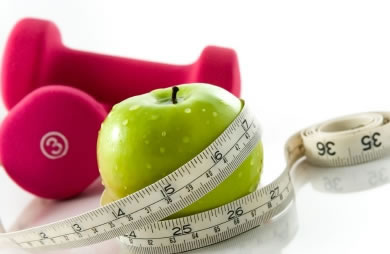 We had five minutes before we needed to get out the door for daycare and work. Toys were strewn across the living room and into the kitchen. My son, The Boy, was vrooming his trucks across the coffee table, generally being the self-sufficient version of himself who makes the morning rush easy. I was tempted to let him play while I read a book for those last five minutes, but I knew coming home to the mess would make the pre-dinner rush that much harder. I picked my battle.
We had five minutes before we needed to get out the door for daycare and work. Toys were strewn across the living room and into the kitchen. My son, The Boy, was vrooming his trucks across the coffee table, generally being the self-sufficient version of himself who makes the morning rush easy. I was tempted to let him play while I read a book for those last five minutes, but I knew coming home to the mess would make the pre-dinner rush that much harder. I picked my battle. "Boy, let's pick up our toys so we can go to school." The Boy continued playing demolition derby on the table. "Hey kiddo. Let's pick up our toys. C'mon, help Momma." I grabbed a couple trucks and threw them into the basket. "Beep, beep," said The Boy. Parents of toddlers--my son is 21 months old--know this routine. Toddlers often seem too busy to pay attention. As they reach their second birthday, children are meeting dozens of milestones, according to the American Academy of Pediatrics, learning everything from how to kick a ball to how to string together sentences. It's no wonder newborns seem to have longer attention spans than these balls of budding skills. But there are ways to make yourself heard and to help your child learn how to listen. Have great expectations. Expect toddlers to understand and they will. Eventually. One of my most repeated mistakes as a first-time parent is underestimating my child. As The Boy transitioned from baby to toddler, I assumed he ignored me because he didn't understand me. Then, I noticed his comprehension powers only failed when I asked him to do something he didn't want: to stop playing, to have a diaper changed, to eat some spinach. When I realized The Boy probably could understand, at least a little, I became more persistent and, lo and behold, he started to listen. He couldn't ignore me forever. Louder isn't better. But persistence doesn't mean being loud. When a toddler acts like she can't listen, it's tempting as a parent to just say things a little louder. A little slower. Again and again. Until you're yelling and the child still is in their own world--or worse, she's yelling, too, because now she thinks she's in trouble. You know how people will talk really loudly and slowly, e-nun-ci-a-ting ev-e-ry syl-la-ble, when they think someone doesn't speak their language? Comprehension doesn't improve, because you're still speaking a different language. Both parties end up annoyed. Yeah, it's like that with toddlers, too. Lower your voice. So, how do you speak toddler? A good first step is to lower your voice, both in tone and height. When I really need The Boy to listen, I get down on his level and make eye contact. My voice isn't coming at him from on high; it's right in front of his face. He sees my lips moving and my eyebrows raising. Good listeners don't just hear words. Good listeners "hear" all the little nonverbal cues a person makes. Getting down on toddler's level makes them pay attention to you, but child development experts and organizations like How Kids Develop say it also teaches them to watch for those nonverbal cues so crucial to real understanding and communication. Use your hands. While you're down there, touch your kiddo. Sometimes, toddlers need a physical reminder to be here now, not two steps ahead. Children this age have a hard time standing still or sticking to one task. The Boy listens best when I'm right in front of him, looking into his eyes and touching his arms. Something as simple as a hand on his head as I pass by and ask him to go to his chair for dinner can be the difference between his following the direction or ignoring it. Picking up a toy as you ask him to pick up the rest shows him what to do. Be silly. When all else fails, play to your toddler's strengths. Toddlers are silly creatures. They love to sing and dance and rhyme. They are natural mimics. A song or a game or a goofy turn of phrase often is just the thing to catch a child's attention and make them understand. There's a reason why so many daycares and parents use the Barney clean-up song to get kids to pick up toys. Have a dialogue, not a monologue. Most importantly, listen to your toddler. Talking to your child from birth-- narrating daily life, singing to them, reading to them--is vital to developing his communication skills, according to ZeroToThree, a national nonprofit dedicated to helping parents and professionals give kids the best start possible. But the other half of the communication equation is just as vital: Parents need to listen to their kids. By picking words out of their babble and repeating those back, you add to children's vocabulary. By listening to their stories and requests, you let children know they matter and that this is how people behave. And, while you're listening, you might pick up the information you need to get through to him. That morning The Boy was so busy with his trucks, I tried all my tactics. I believed he knew what I was asking. I got down on his level. I put the truck into his hand and sent him in the direction of the basket. The Boy followed my direction, but was distraught, saying, "Play. I wanna play." So, I stopped him. "You want to play with the trucks, right?" "Yeah." "Do you want to play trucks at school with your friends?" "Yeah. Play friends. Trucks." "OK, then let's pick up our toys here so we can go to school. Deal?" "Deal." Thirty seconds later, I was out the door with a grinning kid, all the trucks waiting in their basket for our return. |
Teaching a Toddler to Listen
6 Ways to Communicate with Ease
Page 1 of 1






Member Comments